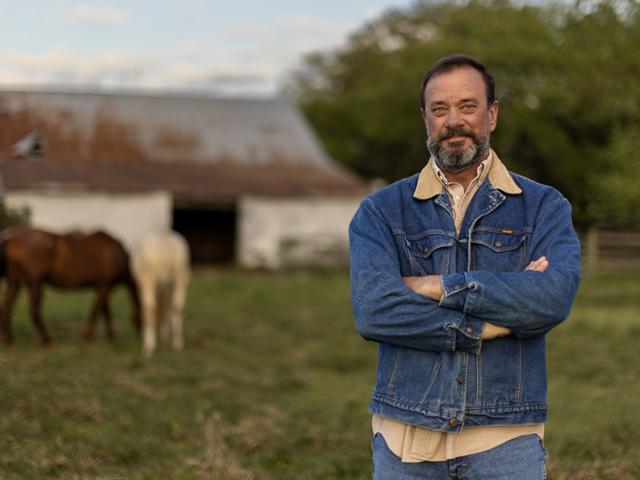SCOTUS Sides With TX Rancher on Floods
Supreme Court Sides With Texas Rancher DeVillier on Flooding Compensation Case
LINCOLN, Neb. (DTN) -- The Supreme Court on Tuesday unanimously ruled Texas rancher Richie DeVillier can continue to seek compensation from the state of Texas for the flooding of his 900-acre ranch in southeast Texas allegedly resulting from Interstate 10 construction.
The Supreme Court on Tuesday overturned a Fifth Circuit Court of Appeals opinion that stated, "the Fifth Amendment Taking Clause as applied to the states through the Fourteen Amendment does not provide a right of action for takings claims against a state."
DeVillier's attorneys argued before the Supreme Court that property owners can seek redress under the self-executing takings clause in the Constitution when property is taken without just compensation.
Landowners led by DeVillier had initially filed what is called an inverse condemnation lawsuit against the state.
Such lawsuits are remedies for property owners when a government takes or damages property for public use without holding eminent domain proceedings. The state moved the Interstate 10 cases to federal court.
In writing the unanimous court opinion, Justice Clarence Thomas said that concession by the state of Texas was enough to resolve the case and the court remanded it back to the lower courts.
"Texas state law does provide an inverse condemnation cause of action by which property owners may seek just compensation against the state based on both the Texas Constitution and the Takings Clause," the court wrote in its opinion.
"This case therefore does not present the circumstance in which a property owner has no cause of action to seek just compensation. The court therefore remands so that DeVillier and the other property owners may proceed through the cause of action available under Texas law."
In a statement to DTN, DeVillier said the ruling was a relief to his family.
P[L1] D[0x0] M[300x250] OOP[F] ADUNIT[] T[]
"Texas can now be held accountable under the Fifth Amendment," he said. "This is the pinnacle of a long, hard-fought battle, and we can't stress enough what a blessing this is."
Texas landowners experienced extensive flooding first in 2017 and again in 2019 with Hurricane Harvey and Tropical Storm Imelda.
The state of Texas raised the interstate's elevation by more than a foot and installed solid concrete barriers separating east- and west-bound lanes -- creating a damming effect.
Texas argued before the Supreme Court that the state could not be sued under the Fifth Amendment.
During oral arguments at the Supreme Court, the state changed its tune, saying property owners could sue under the Fifth Amendment.
The old Interstate 10 -- before reconstruction -- allowed water to flow underneath and drain off in times of heavy rain.
That all changed in 2000.
The state of Texas raised the interstate's elevation by more than a foot and installed solid concrete barriers separating east- and west-bound lanes.
Texas made the changes to the stretch of interstate to always keep at least one lane of traffic open if flooding occurred -- billed as an enhancement of public safety.
Before the construction, DeVillier said there were two asphalt lanes with a ditch in the center and water would move under the interstate.
The construction, argued DeVillier and many other property owners in the region, essentially created a dam on the interstate's north side. The concrete barrier does not include slots at the base that would allow water to flow across the road.
Institute for Justice Chief Counsel Scott Bullock said the Supreme Court's ruling is just the beginning for DeVillier and other property owners along Interstate 10.
"Texas's rapid about-face at the Supreme Court means that Richie and his family will still have their day in court," Bullock said in a statement.
"There is more work ahead to ensure that other government officials can be held accountable when they violate bedrock constitutional rights."
Also see:
"SCOTUS to Hear Plight of Flooded Farms," https://www.dtnpf.com/…
"Texas Landowners Case Argued at SCOTUS," https://www.dtnpf.com/…
Todd Neeley can be reached at todd.neeley@dtn.com
Follow him on social platform X @DTNeeley
(c) Copyright 2024 DTN, LLC. All rights reserved.




